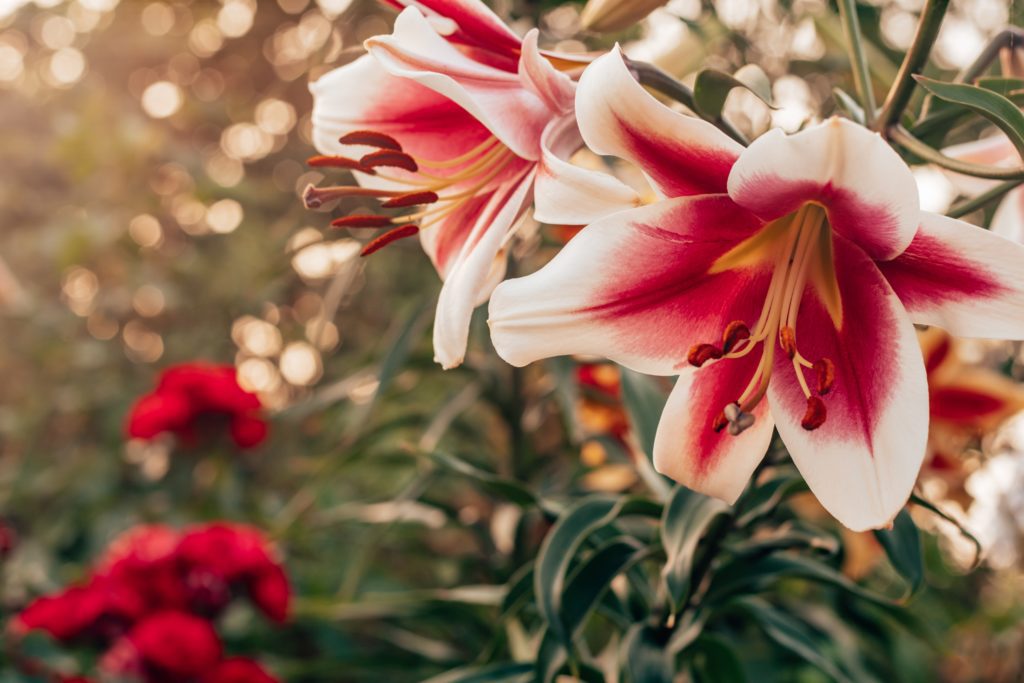Pets are curious creatures, and sometimes they explore the world with their mouths. Unfortunately, some plants can be harmful or toxic to them if ingested. Here are some common plants that can be toxic to pets:
- Lilies: Various types of lilies, including Easter lilies, tiger lilies, and daylilies, are highly toxic to cats and can cause kidney failure.
- Azaleas and Rhododendrons: These flowering shrubs contain toxins that can cause vomiting, diarrhea, and even cardiovascular collapse in pets.
- Sago Palm: All parts of the sago palm are toxic to pets, causing symptoms like vomiting, diarrhea, seizures, and liver failure.
- Tulips and Daffodils: These spring-blooming bulbs contain toxins that can cause gastrointestinal upset, drooling, and, in severe cases, heart arrhythmias or respiratory distress.
- Oleander: Oleander is highly toxic to pets and can cause symptoms such as drooling, vomiting, diarrhea, abnormal heart rhythms, and even death.
- Dieffenbachia: Also known as dumb cane, this popular houseplant can cause oral irritation, drooling, vomiting, and difficulty swallowing if ingested by pets.
- Philodendron: Another common houseplant, philodendrons contain calcium oxalate crystals, which can cause oral irritation, drooling, and difficulty swallowing.
- Pothos: Similar to philodendrons, pothos plants contain oxalate crystals that can cause oral irritation, vomiting, and difficulty swallowing.
- Marijuana: While it may be legal in some places, marijuana can be toxic to pets, causing symptoms such as depression, vomiting, incoordination, and even seizures.
- Aloe Vera: While aloe vera is known for its medicinal properties for humans, it can cause vomiting, diarrhea, and lethargy in pets if ingested.
These are just a few examples, and there are many other plants that can be toxic to pets. If you have pets and are unsure if a plant is safe to have in your home or garden, it’s always best to research it or consult with a veterinarian.
